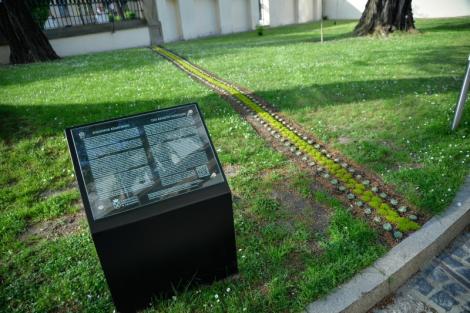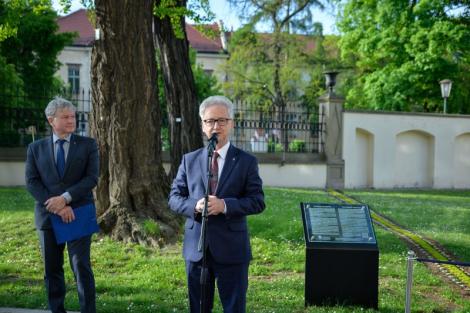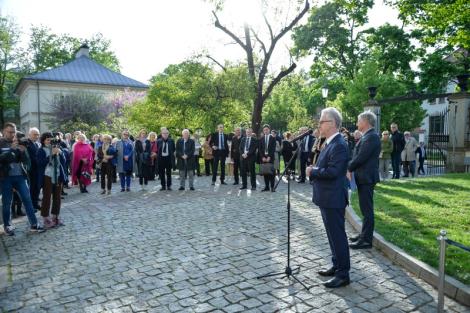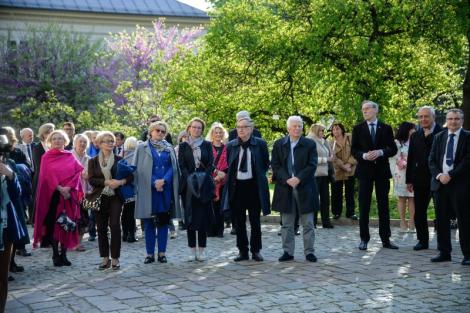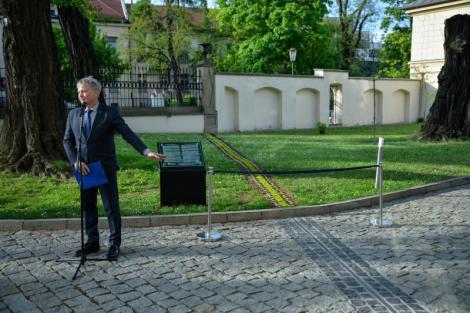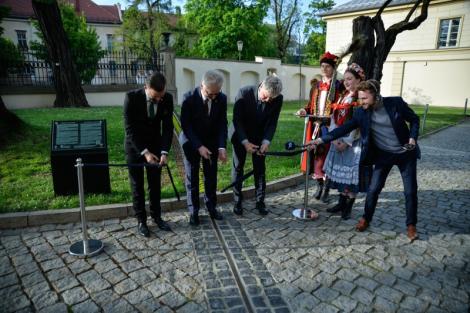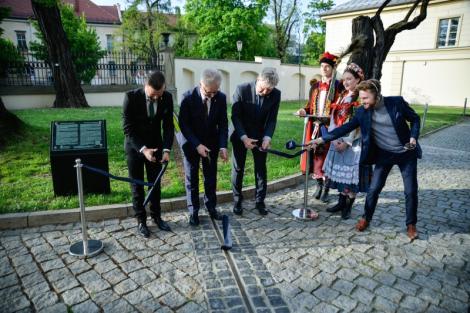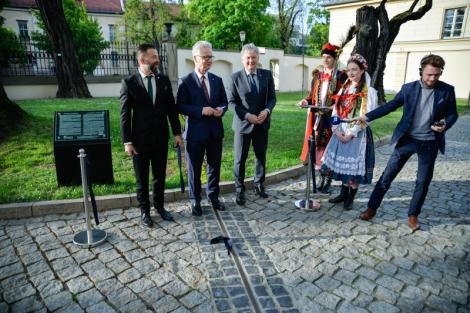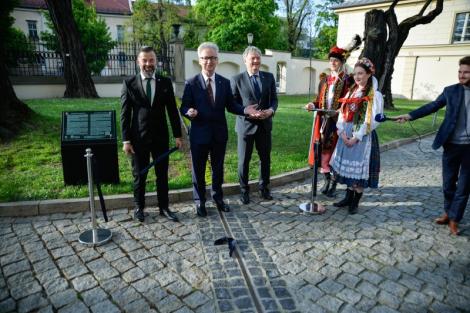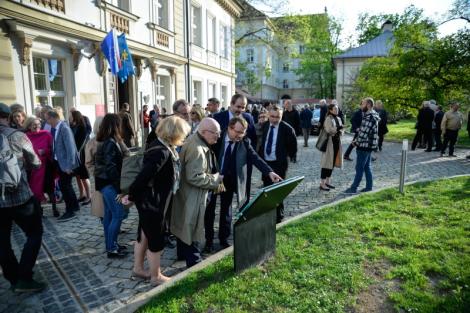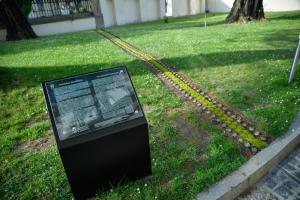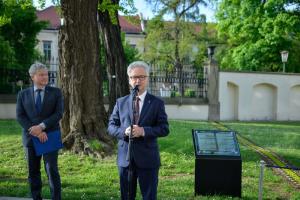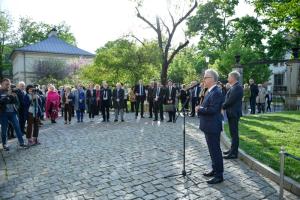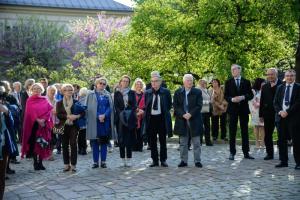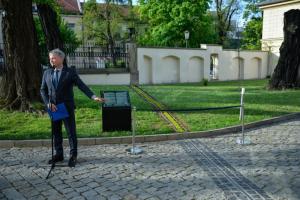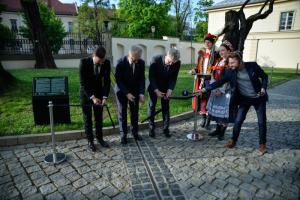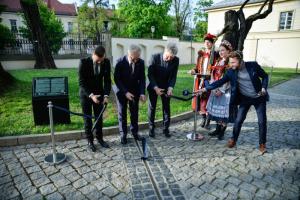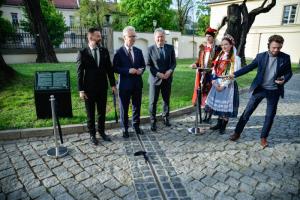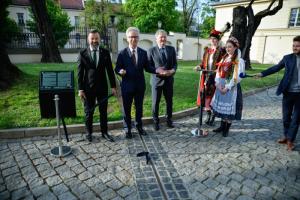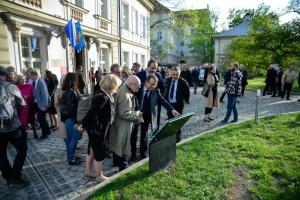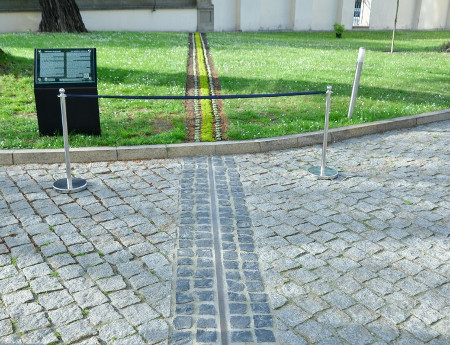
On 12 May an installation which shows the line of the Kraków Meridian – one of the World’s oldest prime, fundamental and base meridians was unveiled in the Botanical Garden of the Jagiellonian University at ul. Kopernika. The event was part of the Jagiellonian University Day celebrations, several days before the start of the Kraków part of the World Copernican Congress.
The Kraków Meridian is one of the oldest prime, fundamental and base meridians in the world, known since the end of the 14th century, and first used in 1379 by the court physician and astrologer of King Władysław Jagiełło, Herman of Przeworsk, to calculate the tables of divisions of heavenly bodies. In the 14th and 15th centuries it was widely used as the fundamental meridian, including by Nicolaus Copernicus in his famous work On the Revolutions of the Heavenly Spheres from 1543, in which all the astronomical calculations were made for the Krakow meridian (MERIDIANUS CRACOVIENSIS).
The exact measurement of the value and the course of the Kraków Meridian was performed by the Rector of the Kraków Academy, Stanisław Pudłowski, who in 1642 – as the first in the history of science – formulated the concept of a natural unit of length, defined by the length of a free-swinging seconds pendulum. After his death, this idea was developed by Tito Livio Burattini in his work Universal Measure of 1675, calling this unit, for the first time, the (Catholic, universal) metre.
The official course of the Krakow meridian was determined along with the establishment of the first astronomical observatory in Krakow, founded in 1792 by the geographer, astronomer, and mathematician Jan Śniadecki, the father of Polish meteorology and the creator of the Polish-language mathematical nomenclature. The observatory was located in a building that is today called Śniadecki College. It is from here that the time signal for Poland was broadcast in the years 1838–1928 (later also in 1946–1984). For the needs of geodetic measurement projects (Local Krakow System, the arc of the 51°N parallel), the observatory was the point of astronomical coordinate adjustment (Laplace point). Great Polish astronomers are associated with this observatory: Tadeusz Banachiewicz – astronomer and surveyor, who first calculated the orbit of Pluto, thanks to the calculus of the Cracovians which he created, and Kazimierz Kordylewski – discoverer of the Earth's dust moons (the so-called "Polish moons").
Śniadecki College was also of great importance for the development of meteorology and climatology. It was here that on May 1, 1792, regular meteorological measurements and observations initiated by Jan Śniadecki began (the historical Stevenson screen outside the building visible on the 2nd floor of the building). Appreciating the importance of the weather at that time, he established a meteorological station, which was equipped with all the then modern meteorological instruments imported from abroad. Thanks to weather measurements and observations, the oldest continuous meteorological series of records in Poland and one of the oldest in Europe was created. Currently, this series is of unique importance for research into climate change, both in Poland and internationally.
The Kraków Meridian symbolically honours the thoughts of generations of Polish natural scientists, i.e. astronomers, geographers, surveyors, and cartographers, whose research efforts allowed the humankind to better understand the world: "Heaven overhead, Earth underfoot."
The Meridian was marked thanks to the initiative of the Honourable Kraków Meridian and the efforts of the Institute of Geography and Spatial Management of the Jagiellonian University.
Authors of the text: Mariusz Meus, Jan Mietelski, Anita Bokwa, Zbigniew Ustrnul, and Marek Drewnik


